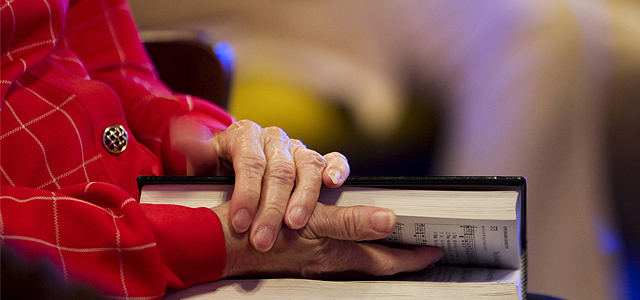In this special issue of Insights — Property for a Pilgrim People — we address one of the most critical issues facing the Uniting Church. How we think about property, and how we use this resource to the best advantage in the mission of God?
In Acts we read how the disciples shared their lives and their belongings – they had “all things in common” and “as many as owned lands or houses sold them and brought the proceeds of what was sold…and it was distributed to each as any had need”. In fact to press the point there is the troubling story of Ananias and Sapphira who are struck dead for keeping back some of the proceeds of the sale of a property. Some commentators doubt that in reality there was such a level of widespread communalism in the early church, and there is no evidence that it continued for very long into the Christian story.
So what of the Uniting Church? It could be argued that since Union we have had too much property, particularly in towns and suburbs where there were three buildings from the three former denominations. While we can track the decline of members of the Uniting Church since 1977, it is harder to track the ups and downs of our property ownership. Many properties have been sold. But many are retained with much smaller Congregations to care for them. Some properties have found alternative use within the Church, for example, with a Congregation from a migrant community. Some properties have become a burden. There are many anecdotes about churches that remain open because a long-time member has said they wish to be buried from that church.
We need to reflect hard on all these issues, and this is what the material in this edition allows us to do. I am sure that much of the property heritage that we have (and the resulting wealth of the church) was established by a faithful generation (sometimes called the ‘builder generation’) for whom the security that came with home ownership/property investment was an entrenched value. It is because of this generation’s hard work that we have such a legacy. Now we must ask, “What future do we want for the Uniting Church”?
Of course we also have a peculiarly Uniting Church systemic issue. There is no single commanding authority in the organisation to force change on a reluctant organisation (such as amalgamating Congregations and selling buildings). Rev. Dr Bill Loader of the WA Uniting Church wrote a book explaining the basics of Christianity and the future of the church. He looked at some of the options for the church and then commented:
“The worsening financial state of the Church is forcing the Church to consider some of these options, but it is far better if they are looked at with a view to being more effective than only with a view to saving money.” (Rev. Dr Bill Loader Dear Kim, This is What I Believe: Explaining Christian Faith Today, Canberra: Kippax Uniting Church, September 2001, p 47).
We might all agree. But that is not how the Uniting Church operates. Rather, the Uniting Church is much more accustomed to making adhoc cuts, rather than doing so as part of a holistic strategy. There is no one part of the Uniting Church that can enforce a coordinated series of changes, and strategy seems to be something we like to talk about rather than act upon. Instead, there are just localised cuts as the need arises and lots and lots of talking! So this opens up questions about the very nature and structure of the Church, which must deal with the situation in which we now find ourselves.
There is urgency about all these issues and we must address them! Let Property for a Pilgrim People stimulate your thinking!
Rev. Dr Andrew Williams, General Secretary













